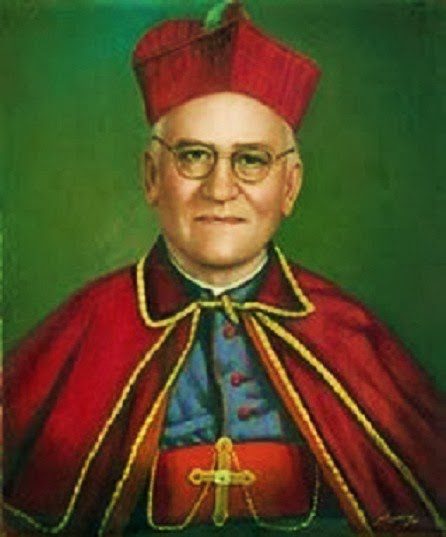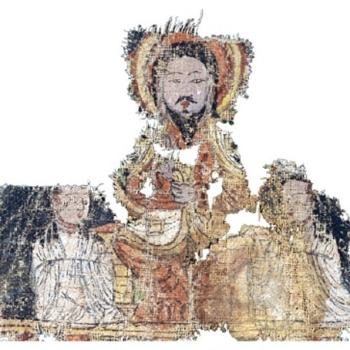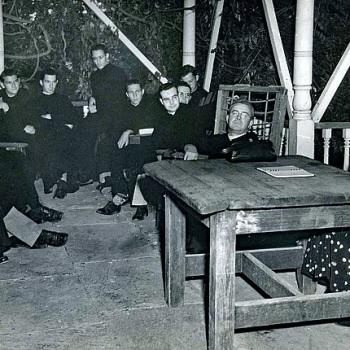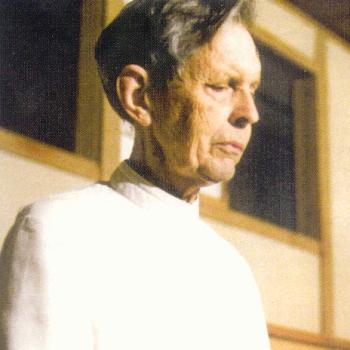Normally in Christian denominations, a significant figure is recalled on the anniversary of their death. Here, is an exception.
Carlos Duarte Costa was born on this day in 1888. He was a prominent Brazilian Roman Catholic clergyman, eventually Bishop of Botucatu. He crossed those higher in the ranks challenging clerical corruption and clerical celibacy. And, was eventually excommunicated by Pope Pius XII. (Himself controversial for his dealings with the Nazi regime during the second world war.)
Upon his excommunication he established the Brazilian Catholic Apostolic Church.
According to Wikipedia:
On June 1945, Costa organized the Brazilian Catholic Apostolic Church (ICAB) and declared that ICAB “is a religious society, established for the propagation of the Christianity in all the national territory, which is separated from the Roman Apostolic Church because of the errors that it has been committing since the moment when it left the catacombs, exchanging the beauty of the teachings of Christ — simplicity, humility, poverty, love of neighbor — for a preeminently mercantilistic institution, where pomp reigns, doing damage to true Christianity, which is found in the humble, the laborers, the legitimate representatives of Jesus of Nazareth.” Costa’s act of schism resulted in his automatic excommunication from the Roman Catholic Church, later Costa was declared a vitandus – a person to be avoided by Roman Catholics – and those Roman Catholics who became adherents of ICAB were excommunicated also.
In 1949, the Brazilian government temporarily suppressed all public worship by ICAB, because its liturgy and its clerical attire would result in confusion by being indistinguishable from those of the Roman Catholic Church and were tantamount to deception of the public. However, a few months later ICAB churches were permitted to reopen, provided that their liturgy would not duplicate the Roman Catholic liturgy, and their clergy would wear gray clerical attire in contrast to the black attire worn by Roman Catholic clergy.
Costa implemented reforms in ICAB of what he saw as problems in the Roman Catholic Church. Clerical celibacy was abolished, though he himself never married and remained celibate. Rules for the reconciliation of divorced and remarried persons were implemented. The liturgy was translated into the vernacular, clergy were expected to live and work among the people, and support themselves and their ministries, by holding secular employment.
Shortly after founding ICAB Costa consecrated two bishops, Salomão Barbosa Ferraz in 1945 and Luis Fernando Castillo Mendez in 1948. Costa, Ferraz, and Mendez established similar autonomous National Catholic Apostolic Churches in several other Latin American countries.[examples needed] Costa was consecrator or co-consecrator of 11 additional bishops, each of whom took a leadership role in either ICAB or one of the other National Churches.
Ferraz left ICAB in 1958. Ferraz reconciled with the Roman Catholic Church in 1960 and his episcopal consecration was recognized as valid. Shortly thereafter, in 1961, Costa died and ICAB underwent several years of tumult as dissensions, schisms, and multiple claimants to the patriarchal throne threw the church into disarray. After this short period, the church found stability and growth under Mendez, Costa’s successor.
Costa’s Brazilian Catholic Apostolic Church has become one of the principal sources for “apostolic succession” for independent Catholic churches, the Costa line joining the already established Villate and Matthew successions, as connections between new Catholic oriented bodies and the historic Episcopate. The church itself, however, has generally avoided involvement within the independent Catholic movement, and does not recognize bishops consecrated in their line but who are not in direct communion with them.
Archbishop Costa himself is remembered as personally saintly, and devoted to the poor.
His church observes today as his feast.













